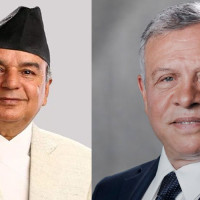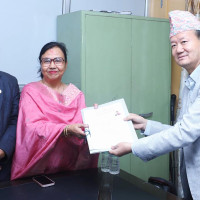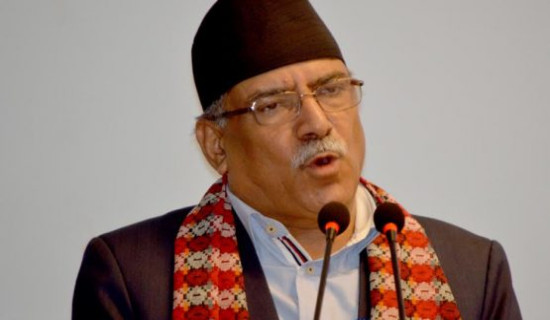- Wednesday, 27 August 2025
Need For Sophisticated Diplomacy
Foreign policy is often defined as the extension of domestic policy. A state’s fundamental task is to maintain survival, defend its sovereignty and enlarge its national interests abroad. The state possesses various powers and applies them to protect its national interests. American political scientist Joseph Nye has defined a state’s powers as hard power, soft power and smart power. It is by use of these three kinds of powers, a country protects and expands its national interests. In international relations, power is the ability to achieve the desired outcome in the pursuit of ensuring and enlarging national interests.
Going back to as early as 400 BC, Athenian historian Thucydides, who is called the father of the school of political realism in the West, has stated that power is the ability to wage and win war, in which ‘the strong do what they can and the weak suffer what they must’. In international power politics, according to Thucydides, war is inevitable as the rising power seeks to displace the existing power. American political scientist Graham T. Allison calls this theory the ‘Thucydides Trap’. Allison has listed 16 cases of power transfer in international politics, of which 14 ended up in war, while only two cases saw a peaceful transfer of power.
Nature of power
The nature of power is hegemonic and it seeks to establish and enlarge dominance through all means available. In the modern world, military power alone does not ensure victory. According to Nye, hard power is the use of force — political, economic, military forces — to make other countries toe one’s line in international politics. In other words, this is called the ‘carrots and sticks’ policy by which countries are sometimes threatened and sometimes enticed. Hard power is coercive power, like military force and economic sanctions, etc., while soft power is persuasive methods or peaceful means—culture, diplomacy and economic assistance, etc., through which countries are cultivated and are brought to one’s fold.
Hard power is basically used to establish, enlarge and maintain hegemony. The dominant states apply hard power over less dominant and weaker countries to bring the latter into the former’s terms. In the present complex international power politics, hard power alone is not sufficient to achieve the foreign policy goal of a country. There are instances when big powers have failed miserably in the international power game despite having superior military strength. The United States suffered a setback in the Vietnam War between 1965 and 1975, paving the Soviet Union to rise as a rival superpower. The invasion of Afghanistan in 1979 marked the beginning of the Soviet Union’s ultimate downfall as a superpower.
While the United States was engaged in Afghanistan and Middle Eastern wars, China quietly rose as a world power and a principal rival of the United States. In the modern era of complex geopolitics marked by economic globalisation and technological interconnection, countries use a combination of hard and soft power, which is called smart power. This includes using all available means and resources, including military, political, economic, cultural, social and diplomatic powers to have the upper hand in the game of international power politics.
Only big powers can afford the use of hard power to maintain influence in the international arena. Small and weak countries like Nepal cannot afford to use hard power to make their presence felt in the international arena and protect their national interest by use of hard power, nor do they have that capability. These countries have to rely on the use of soft power in the international world of diplomacy and foreign policy conduct.
Multiple factors impact foreign policy. Geography is a key factor that influences the foreign policy of the country. In the book ‘Prisoners of Geography’, Tim Marshal is of the view that a country’s foreign policy is often dictated and determined by geographic conditions. We can change other factors depending upon time and context but we cannot change the geography. This is more so for the small and weaker countries. Nepal is a mid-sized country in terms of both physical size as well as population. More than a hundred countries in the world are smaller than Nepal, while only 92 countries are bigger than Nepal in physical size.
But Nepal is considered a small country only when compared to its two giant neighbours. China is the world’s third largest and India the seventh in terms of physical size. Being squeezed between these two giants, Nepal has a little choices in its foreign policy. We cannot choose one of these two immediate neighbours at the expense of the other. Thus, non-alignment and friendship with all countries, including our two immediate neighbours, is not only our choice but our compulsion. Against this background, Nepal’s foreign policy has been, as Leo E Rose calls, the strategy for survival.
A state has to ensure its citizens two types of freedoms or security — freedom from fear and freedom from want. Freedom from fear is the guarantee of people’s civil and democratic rights as well as the defence of their sovereignty and territorial integrity, while freedom from wants implies the guarantee of people’s minimum basic needs for survival. These are part of the broader national interests and objectives of foreign policy.
Foreign policy
Foreign policy and diplomacy are the tools and tactics to protect and enlarge a country’s national interests. Being located between India and China is Nepal’s boon as well as bane. Asia is turning into a pivot of global geopolitical rivalry, of which both of its two immediate neighbours and the United States are principal actors, further adding challenges to Nepal’s foreign policy conduct and diplomatic handling. This demands more sophisticated diplomacy, as we can reap maximum benefit from this situation, provided we handle our diplomacy with greater sophistication and acumen.
Slightest mistakes will land us in trouble, as there is no permanent friend and no permanent enemy in international relations. What is permanent is the national interest that drives the states’ behaviours and actions. The interlocutors of Nepal's diplomacy and foreign policy are required to understand this more than ever before, for which Nepal needs to enhance its diplomatic competence.
(The author is a former chief editor of this daily and a former ambassador. lamsalyubanath@gmail.com)
















